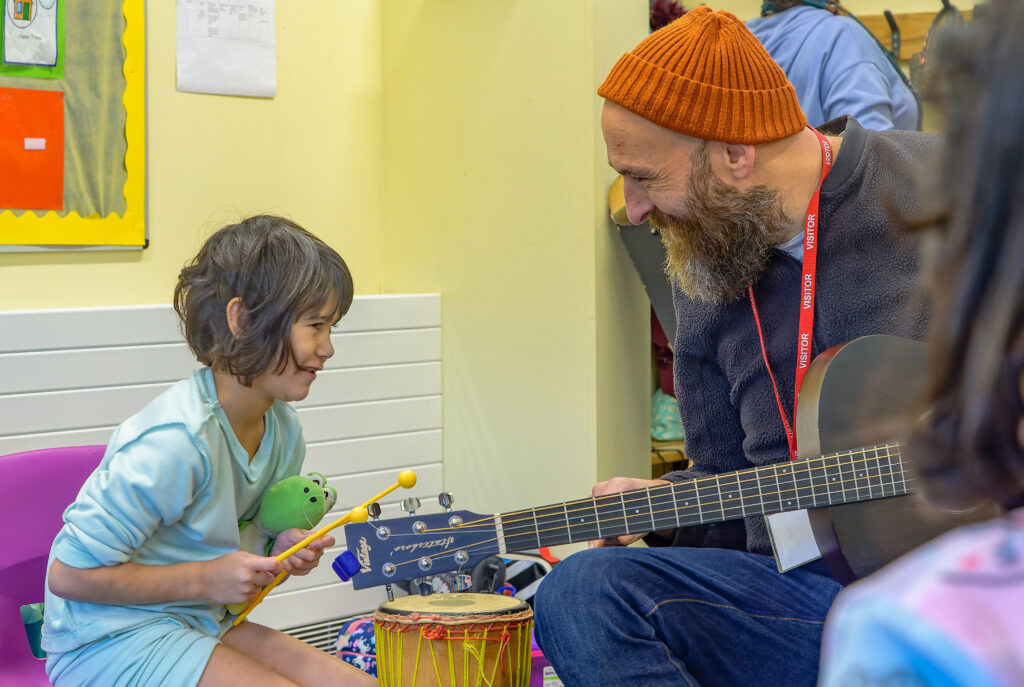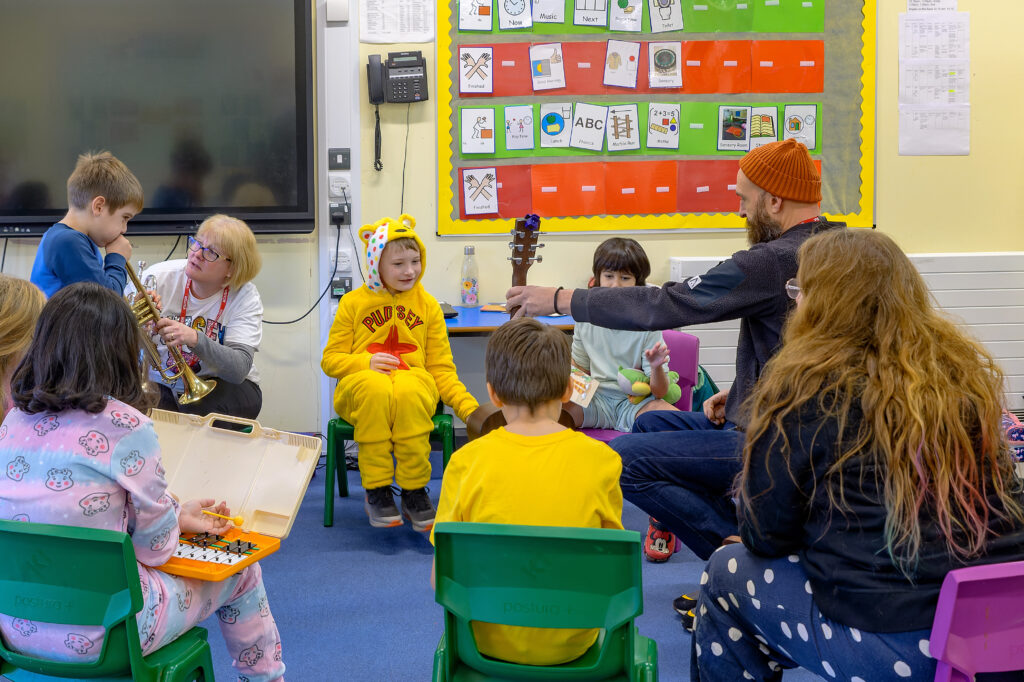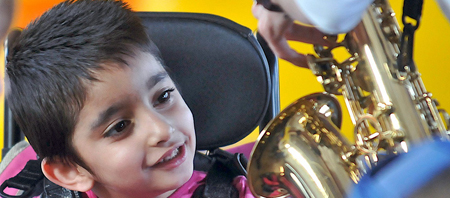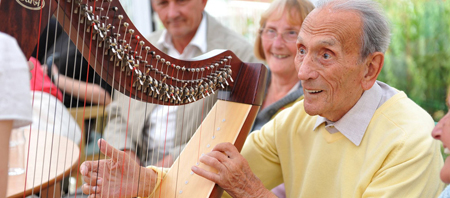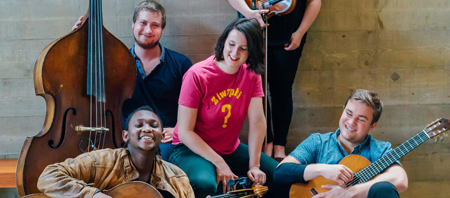Research shows that many children with autism spectrum condition appear to have a special affinity for music, which can be used to support language development, social skills and emotional regulation. Around 5–10% may have unusual musical potential through exceptional auditory development that occurs in the early years.
However, music provision in specialist autism resource bases (ARBs) nationally is inconsistent and not all young people have access to regular music sessions.
A priority for Live Music Now over the next 5 years is to support schools to nurture musical cultures in Autism Resource Bases. Find out more about our ongoing work below.
AHRC funded Spoke Project 2025-26
Musical Connections: Nurturing Musical Cultures in Autism Resource Bases
Youth Music funded pilot programme 2022-25
See findings from our pilot programme that have informed the AHRC Spoke Project
